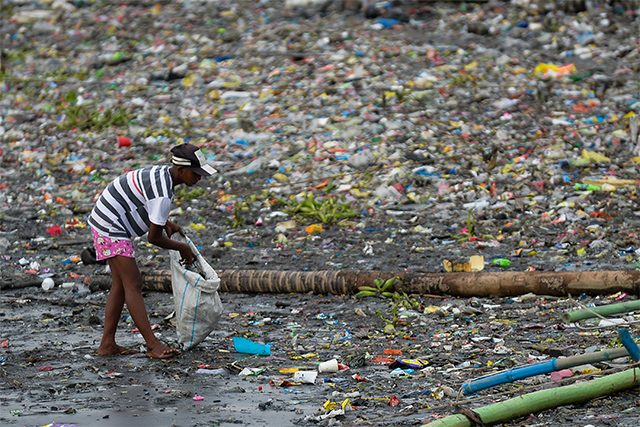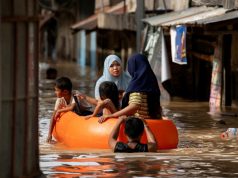
Most of the plastic waste end up in landfill or the ocean due to the lack of recycling facilities in the country.
In the Philippines, there are only 10,730 materials recovery facilities (MRFs) as of 2018, World Wide Fund for Nature – Philippines said. These MRFs only cater to 14,000 out of the 42,046 barangays.
Amid the waste pollution concern, a social enterprise and snacks company partnered with a mall in Quezon City to allow mall goers to donate their plastic which will be transformed into upcycled products.
The year-long waste collection drive commenced last August at the Eastwood Mall.
Other Megaworld Lifestyle Malls in Metro Manila, such as Lucky Chinatown Mall, McKinley Hill, Uptown Bonifacio, and Arcovia City will also soon have the same waste collection program.
The collected plastics in these malls would be turned into eco-lumber and eco-boards, which can be used to make outdoor furniture, bike racks, benches, tables, and others, social enterprise The Plastic Flamingo (PLAF) said.
“This ensures that we are able to recycle plastic and at the same time help reduce the use of precious resources like wood or minerals to make furniture or even shelters,” PLAF CEO Erika Reyes stressed.
From 2020 to 2021, the snack company Mondelez International – Philippines and PLAF collected 43 tons of plastic. For this year, PLAF and Mondelez International seek to collect 20 tons and turn them into usable eco-boards.
READ: In major ocean polluter Philippines, group turns plastic waste into planks
Plastic pollution in the country
The Philippines, an archipelagic nation, was frequently listed among the top contributors to ocean plastic pollution, along with China, Vietnam, and Indonesia.
According to a study of The Ocean Cleanup published by Sciences Advances last year, the country is home to 28% of the rivers responsible for ocean plastic pollution.
READ: Pasig, other Philippine rivers among biggest contributors to ocean plastic pollution
Aside from causing harm to marine wildlife, plastic waste also has a significant effect on climate change and global warming as “about 99% of plastic is made from chemicals sourced from fossil fuels,” according to the Center for International Environmental Law.
Early this year, environmental groups called on countries to support the creation of a negotiating panel with a mandate to prepare an international treaty to combat the plastic crisis.
READ: Green groups urge nations to negotiate a treaty to curb plastic pollution









